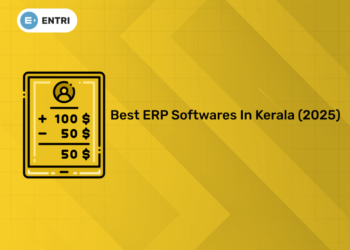Table of Contents
The construction industry has undergone a significant transformation in recent years, driven by advancements in technology, increasing project complexities, and the growing demand for cost-effective solutions. Amidst this evolution, the role of techno-commercial professionals has emerged as a cornerstone of successful project delivery. In this blog, we will explore the significance of techno-commercial careers in construction, the key roles and responsibilities they encompass, the essential skills required to excel in these roles, and the diverse career opportunities available.
Get hands-on with our Quantity Surveyor course – sign up for a free demo!
What is a Techno-Commercial Career in Construction?(Include QS)
A techno-commercial career in construction involves a combination of technical knowledge and commercial expertise to manage projects, negotiate contracts, optimize costs, and ensure efficient execution. Professionals in this role bridge the gap between engineering and business functions, making them key players in construction projects.
The key responsibilities are:
1. Technical Expertise:
Understanding project specifications, engineering designs, and construction methods.
Collaborating with architects, engineers, and contractors to ensure technical accuracy.
Conducting feasibility studies and providing technical support during execution.
2. Commercial Management:
Preparing cost estimates, budgets, and financial projections.
Managing procurement of materials and services while negotiating with suppliers and vendors.
Drafting and managing contracts, including tenders and bids.
Ensuring projects are delivered within budget and on time.
3. Coordination and Communication:
Acting as a liaison between technical teams and clients or stakeholders.
Addressing both the technical and business aspects of a project to align goals.
Communicating progress, risks, and solutions effectively to non-technical stakeholders.
4. Risk and Compliance:
Identifying and mitigating project risks.
Ensuring compliance with industry standards, legal requirements, and safety regulations.
Key Techno-Commercial Roles in Construction
1: What is the main purpose of a Bill of Quantities (BoQ)?
Techno-commercial roles in construction are pivotal to managing the intersection of technical project execution and business strategy. Some of the key roles in this domain are:
1. Techno-Commercial Manager
Oversees both the technical and commercial aspects of construction projects.
Responsibilities: Budgeting, cost estimation, vendor management, contract negotiations, and ensuring technical compliance with project requirements.
2. Project Manager (Techno-Commercial)
Combines technical expertise with project management and commercial decision-making.
Responsibilities: Planning, execution, cost control, resource allocation, and ensuring on-time project delivery.
3. Quantity Surveyor (Techno-Commercial Focus)
Specializes in cost management and contract administration while understanding technical requirements.
Responsibilities: Preparing bills of quantities, cost forecasting, and negotiating contracts with suppliers and subcontractors.
4. Procurement Manager
Manages the sourcing of materials and services, focusing on cost-effectiveness and quality.
Responsibilities: Supplier evaluation, procurement strategies, and ensuring timely delivery of materials.
5. Contracts Manager
Expert in drafting, reviewing, and managing contracts to mitigate risks and ensure compliance.
Responsibilities: Negotiating terms, managing disputes, and ensuring that projects adhere to contractual obligations.
6. Business Development Manager (Construction)
Focuses on acquiring new projects and partnerships while leveraging technical knowledge.
Responsibilities: Tender preparation, client negotiations, and aligning technical solutions with client needs.
7. Cost Engineer
Focuses on cost control and efficiency during project execution.
Responsibilities: Preparing budgets, analyzing cost variances, and optimizing resource utilization.
8. Technical Sales Engineer
Bridges technical solutions with sales processes.
Responsibilities: Demonstrating products or services, understanding client requirements, and providing tailored technical solutions.
9. Construction Planner (Techno-Commercial)
Plans and schedules construction activities, balancing technical and financial aspects.
Responsibilities: Using project management tools to create schedules, allocate resources, and monitor progress.
10. Site Engineer (Techno-Commercial Responsibilities)
Combines on-site technical responsibilities with cost and resource management.
Responsibilities: Supervising construction work, coordinating with subcontractors, and maintaining project budgets.
11. Infrastructure Development Analyst
Focuses on the financial viability and technical feasibility of infrastructure projects.
Responsibilities: Conducting feasibility studies, risk analysis, and preparing investment reports.
Get hands-on with our Quantity Surveyor course – sign up for a free demo!
Master Quantity Surveying – Build a Rewarding Career Today!
Gain in-demand skills in cost estimation, project budgeting, and contract management with our Quantity Surveying Course. Learn from industry experts and boost your career in construction and infrastructure. Enroll now and take the first step toward success!
Know MoreEssential Skills for Techno-Commercial Professionals
Techno-commercial professionals play a critical role in bridging technical expertise and business strategy. To excel in this field, they need a unique blend of technical, commercial, and interpersonal skills. Here are the essential skills:
1. Technical Skills
Engineering Knowledge: In-depth understanding of construction methods, materials, and standards.
Project Management: Proficiency in planning, scheduling, and execution using tools like Primavera or MS Project.
Design and Analysis: Familiarity with design software like AutoCAD, Revit, or STAAD for technical evaluation.
Quality Control: Understanding of quality standards, testing, and compliance in construction.
2. Commercial Acumen
Cost Management: Expertise in budgeting, cost estimation, and financial forecasting.
Procurement and Vendor Management: Negotiating contracts and ensuring cost-effective procurement.
Contract Management: Knowledge of contract laws, FIDIC standards, and dispute resolution.
Risk Assessment: Identifying and mitigating financial and operational risks.
3. Communication and Negotiation Skills
Stakeholder Communication: Ability to effectively communicate with clients, vendors, and technical teams.
Negotiation: Strong skills to negotiate contracts, costs, and project terms.
Presentation Skills: Delivering technical and financial proposals clearly and persuasively.
4. Analytical and Problem-Solving Skills
Feasibility Studies: Evaluating project viability from technical and financial perspectives.
Decision-Making: Balancing technical and commercial priorities to make informed decisions.
Data Analysis: Using tools like Excel, Power BI, or ERP systems for data-driven insights.
5. Interpersonal and Leadership Skills
Team Collaboration: Coordinating with multidisciplinary teams to achieve common goals.
Leadership: Leading project teams, setting goals, and ensuring alignment with project objectives.
Adaptability: Handling dynamic project environments and managing unexpected challenges.
6. Industry-Specific Knowledge
Compliance and Regulations: Familiarity with local and international construction codes and safety standards.
Market Trends: Awareness of industry developments, technological advancements, and competitive landscapes.
Sustainability Practices: Understanding eco-friendly construction methods and materials.
7. Technical Tools and Software Proficiency
ERP Systems: SAP, Oracle, or similar tools for resource and financial management.
Design Software: AutoCAD, Revit, or BIM tools for planning and visualization.
Analytical Tools: Primavera, MS Project, and other project scheduling tools.
8. Financial Knowledge
Return on Investment (ROI): Calculating project profitability and ensuring financial sustainability.
Accounting Basics: Understanding basic financial statements and cash flow management.
9. Networking and Business Development Skills
Building long-term relationships with clients, vendors, and stakeholders to secure new opportunities.
Why Are Techno-Commercial Careers Crucial in Modern Construction?
The key reasons why techno-commercial careers are crucial are:
- It bridges the gap between technical and commercial domains.
- Helps in cost efficiency.
- These professionals can identify, assess and mitigate risks.
- Techno-commercial professionals have the technical knowledge to implement the cutting edge technologies while managing their financial implications.
- They promote sustainable construction practices.
- These experts are capable of adapting to market trends and innovation.
Get hands-on with our Quantity Surveyor course – sign up for a free demo!
Career path and Opportunities
Professionals typically start in roles such as site engineers, project engineers, or quantity surveyors and progress to techno-commercial roles by acquiring business management skills. Advanced degrees like an MBA or certifications in project management (e.g., PMP) can further enhance career prospects.
These professionals can progress through various levels based on their skills, experience, and interests, with opportunities in both the private and public sectors.
Typical Career Path
Entry-Level Roles
- Site Engineer/Field Engineer
- Junior Quantity Surveyor
- Technical Sales Engineer
Mid-Level Roles
- Techno-Commercial Executive/Coordinator
- Project Engineer
- Procurement Specialist
- Contracts Engineer/Manager
Senior-Level Roles
- Techno-Commercial Manager
- Project Manager
- Business Development Manager (Construction)
Leadership and Strategic Roles
General Manager/Operations Head
Chief Technical Officer (CTO)
Director of Projects/Construction
Entrepreneur/Consultant
Opportunities Across Industries
Techno-commercial professionals have opportunities in various domains within construction and related industries:
Construction Companies: Managing large-scale residential, commercial, and infrastructure projects.
Engineering, Procurement, and Construction (EPC) Firms: Focusing on turnkey projects.
Real Estate Developers: Handling cost optimization and technical execution.
Government Agencies: Working on public infrastructure projects.
Consulting Firms: Providing cost, contract, and project management services.
Manufacturers and Suppliers: Supporting sales and business development of construction materials and equipment.
Conclusion
Techno-commercial careers in construction are at the forefront of shaping the industry’s future. As construction projects grow increasingly complex and demand for cost efficiency and sustainability rises, the role of techno-commercial professionals has become indispensable. A certified course will help you develop the skills required to excel in this field. Explore the world of Quantity Surveying through Entri Elevate’’s Quantity Survey certification course.
The course covers principles, methods, and techniques in quantity surveying, including measurement, estimating, cost control, and contract administration. It is a 6 month online course and can be done in Malayalam, Telugu or Tamil. Click on the link below to learn more about the course.
Get hands-on with our Quantity Surveyor course – sign up for a free demo!
|
Engineering Upskilling Courses
|
| MEP Course |
| BIM Course |
| Structural Design Course |
| Oil and Gas Course |






















